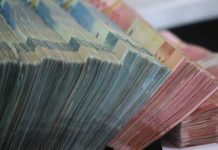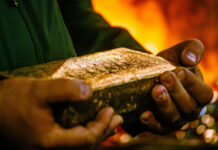[miningmx.com] — THOUGH some seem to have difficulty grasping the concept, there’s no contradiction between Nicky Oppenheimer’s endorsement of Anglo American’s strategy and his family’s sale of a third of its 3% stake.
While cynics may suspect that Oppenheimer was merely being politic, there’s no real reason to doubt that the sale is simply an acknowledgment that the “What’s good for General Motors is good for America” tag no longer applies. For decades the Anglo/De Beers axis drove the Oppenheimer family’s wealth, aided by rights to participate in new group business that might raise eyebrows now but were perfectly legitimate at the time.
However, as Anglo grew, the family stake was inevitably diluted and it was only prudent to both reallocate assets and reinvest cash flow into a broader spread of interests.
The key family company has always been the privately held E. Oppenheimer & Son, which – again legitimately – plays its cards close to its chest. The family may regularly feature in international “rich lists” but those are largely surmise. Nobody really knows how rich the Oppenheimers are.
The sale also confirms that Anglo is no longer a core strategic investment to the Oppenheimers but simply a portfolio holding and must therefore be governed by different criteria. On the basis of being a passive investment, it may well be considered too large a proportion of family assets.
 A week is a long time in business
A week is a long time in business
So while there’s no reason to doubt Nicky’s claim that there’s no intention to run the Anglo stake down any further, it must be remembered that a week is a long time in business. That’s a statement of intent; not a perpetual commitment. The family interests will continue to evolve over time and priorities may change again.
The next crucial point will be when the agreement by which they manage De Beers comes up for renewal. Meanwhile, Nicky Oppenheimer has indicated that the family believes there are great opportunities both in South Africa and elsewhere in Africa for private equity investments, in the mining business and in other sectors.
They haven’t indicated what they got for their shares, but it’s generally thought to be around R5bn. That may be small change on Wall Street, but it’s a healthy sum by African standards. They won’t be short of people knocking on their door to help them spend it – and it’ll be fascinating to see who they let in.










